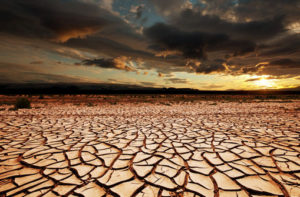World leaders urged to invest more resources in landscape restoration to mitigate climate impact
 A forest research scientist has called on world leaders to commit more resources to landscape restoration and reclamation to help create sustainable forests to mitigate the impacts of climate change.
A forest research scientist has called on world leaders to commit more resources to landscape restoration and reclamation to help create sustainable forests to mitigate the impacts of climate change.
Climate change and its impact on the survival of mankind has been the most topical issue across the world, and as world leaders and activists converge in Egypt to discuss and find solutions to the problem, many people are expectant of the outcome of the meeting.
Dr. Mrs. Gloria Djaney Djagbletey, Head of Forest and Climate Change Division of the Forestry Research Institute of Ghana (FORIG) of the Council for Scientific and Industrial Research (CSIR), told the Ghana News Agency in an interview that forests played a critical role in the mitigation measures of climate change.
However, forests, especially those in developing countries, and their biodiversity continue to dwindle significantly as a result of illegal logging, improper agricultural practices, wildfires, and in recent times, illegal mining activities.
Sharing her expectations from the ongoing COP27 in Egypt, she said more investments were needed to reclaim and restore degraded landscapes to counter the effects of climate change.
Dr Djagbletey pointed out that it was time world leaders, especially those in Africa and other forest countries, took land restoration activities very seriously to reduce the negative effects of climate change on their citizens.
They should also endeavour at the ongoing COP27 meeting, to negotiate for a good deal on forest carbon credits to enable them to provide the needed financial resources to their citizens to plant more trees.
Citing particularly Ghana, where forest resources have declined significantly in the past decade, she said there was urgent need for serious landscape restoration and reclamation.
She said efforts at reclaiming, especially the denuded landscapes at Tano Nimri, Fure River, Subri River, Apamprama forest reserves, among others, where the illegal mining had been very prevalent, should not be treated as business as usual, as it encompassed the drawing up of a comprehensive reclamation plan.
Dr. Djagbletey said the time had come that all hands ought to be on deck to help restore the country’s forests.
“We need to work as fast as possible to restore the integrity of the forest heritage, so the forest will continue to provide the ecosystem services that are needed for the well-being of humanity or life on earth.
“This will require huge sums of money and the political will of leaders: the government, traditional rulers, inhabitants of forest fringe communities, law enforcement agencies, Forestry Commission, NGOs, CSOs, Research and Academia and other stakeholders,” she stated.
Ghana has in recent times experienced unpredictable rainfall patterns, which had brought heavy flooding, resulting in the death of many people and destruction of properties in some communities, especially along the coastal areas of the country.
The long and severe drought in some parts of the northern sector of the country had affected food production and increased the poverty levels of the people in those areas.
It is as a result of some of these and other negative effects, that many climate activists are eagerly watching to see concrete and practical outcomes that would result in the implementation of an effective measures that help reduce global emissions from Two degree Celsius, as well as provide mitigation and adaptation strategies to reduce the impacts of climate change, from the ongoing COP27 meeting in Egypt.
Source: GNA
